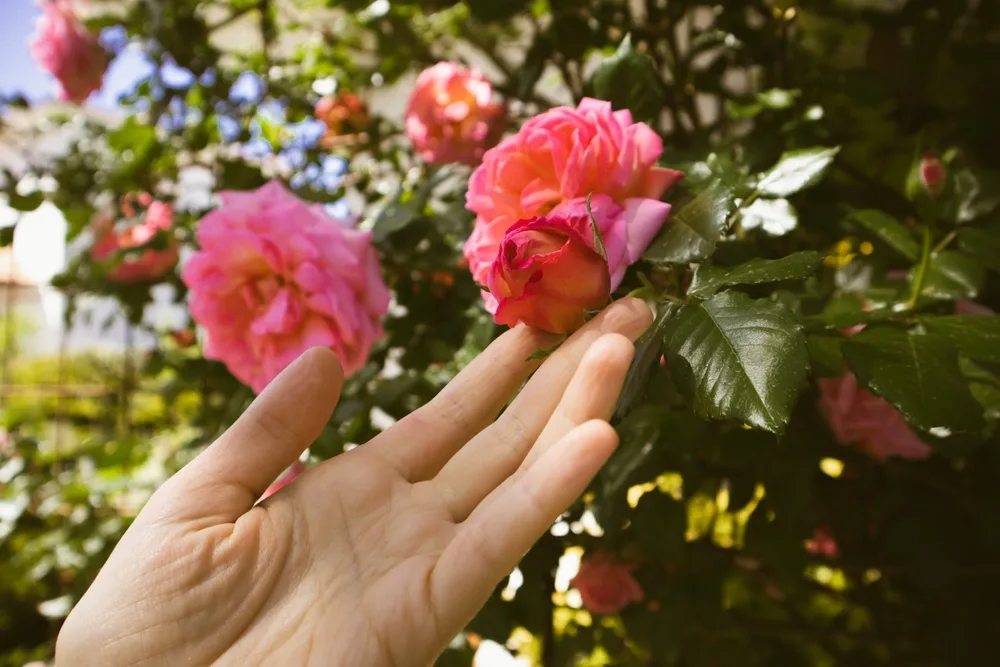Generally, roses are hardy plants that can thrive and bloom with minimal attention.
However, roses require more nutrients than most flowering shrubs to achieve the largest blooms and healthiest growth.
Providing these nutrients is straightforward, whether you choose organic or synthetic fertilizers. The key is applying the best rose fertilizer with the right nutrient balance regularly.
Knowing the optimal times to fertilize roses and maintaining a consistent schedule will reward you with a garden full of beautiful, fragrant flowers.

Why Roses Need Fertilizer
Like all plants, roses need three main nutrients: nitrogen (N), phosphorus (P), and potassium (K), along with secondary and trace elements.
Trace elements (such as boron, chlorine, copper, and iron) support cell and root growth.
While garden soil supplies some of these nutrients, they become depleted as plants grow and consume them. That’s where you come in; replenishing these nutrients helps roses perform at their best.
Choosing the Best Rose Fertilizers
Nutrients can come from organic (plant or animal-derived) and synthetic sources. Fertilizers are available in dry, liquid, or foliar spray forms.
Look for products specifically labeled for roses and carefully follow the instructions for amounts and application frequency.
Remember, more is not better; over-fertilizing can harm plants and make them more prone to diseases and pests.
Organic Rose Fertilizers
Organic fertilizers are less likely to overload the soil with chemicals. However, they typically have lower nutrient concentrations than synthetic options, so more frequent applications may be necessary.
The benefit is that organic fertilizers also nourish soil organisms and contribute to humus formation, improving soil health. Some good organic options include:
- Fish emulsion
- Aged manures
- Compost tea
- Alfalfa meal
- Bone meal
How and When to Fertilize Roses
Regular feeding is essential for most roses throughout the growing season.
However, the timing and method of fertilization depend on whether the plants are new or established and whether they are repeat bloomers.
Newly Planted Roses
When planting a new rose, mix compost into the hole. Once the rose is established about a month after planting, apply a liquid fertilizer (either synthetic or organic).
Established Roses
Begin feeding established roses in the spring when new growth reaches about 6 inches. Apply a second round of liquid fertilizer after the first bloom.
Repeat-Blooming Roses
Feed repeat-blooming roses in the spring as you would other roses, then continue fertilizing every 2-3 weeks until late summer.
Tips for Fertilizing Roses
- Conduct a soil test every few years to adjust soil pH, which is crucial for rose health. The test results will help you determine the right type of fertilizer and any additional soil amendments, such as garden lime, needed.
- Water your roses before feeding them, especially if conditions are dry, and keep them well hydrated afterward. This helps prevent fertilizer burn on roots and leaves and ensures better nutrient absorption.
- Stop fertilizing about eight weeks before your area’s average first frost date. This prevents stimulating new growth that could be damaged by cold temperatures.
Following these guidelines will help ensure your roses get the nutrients they need to thrive, resulting in vibrant and abundant blooms.
